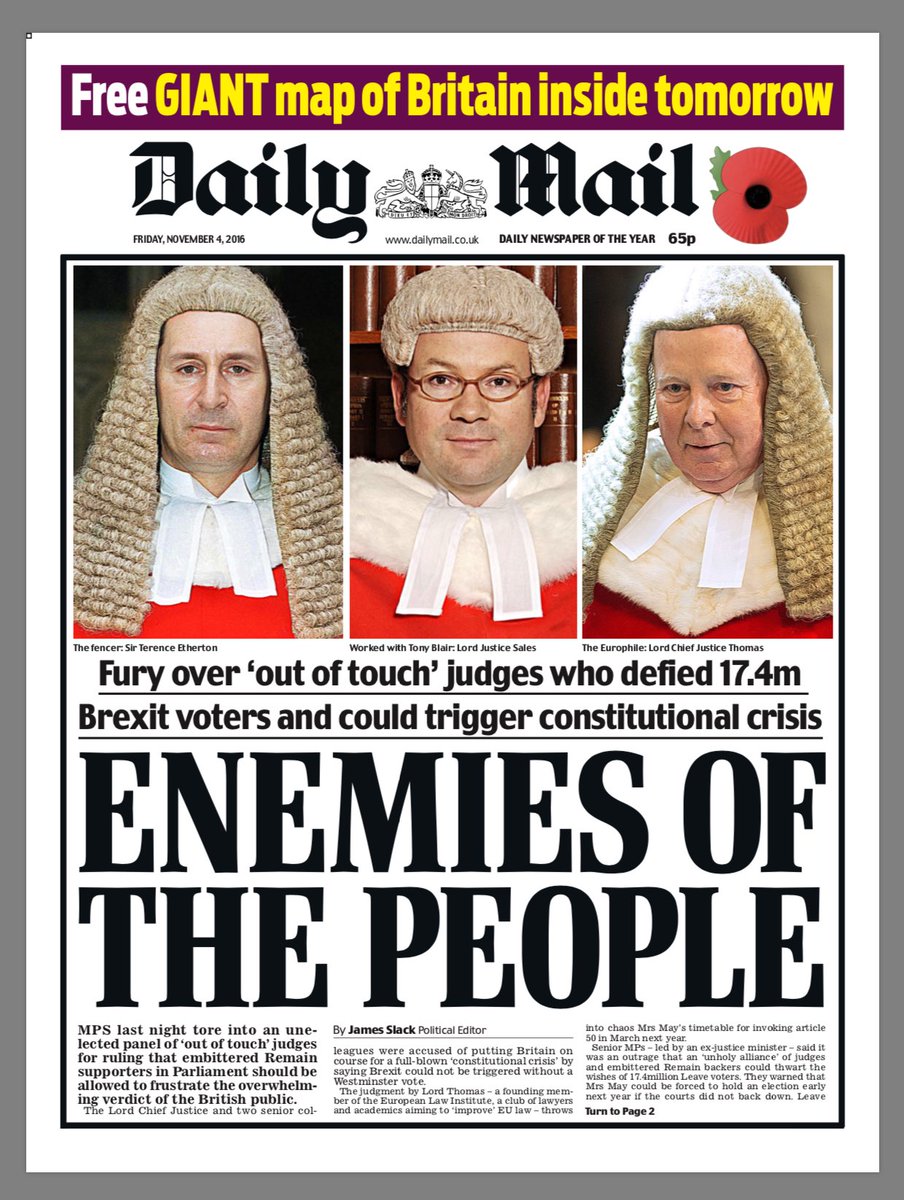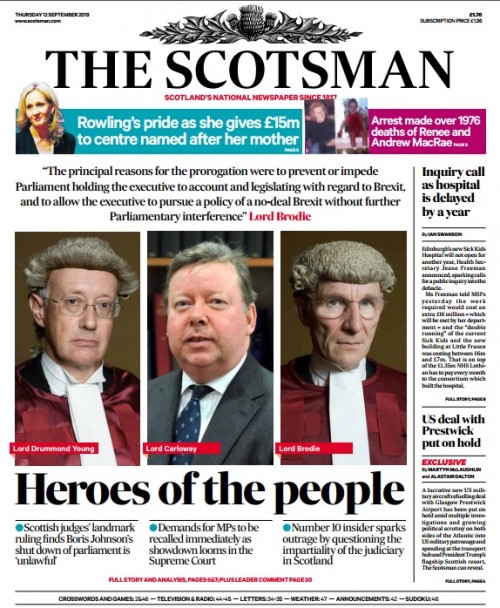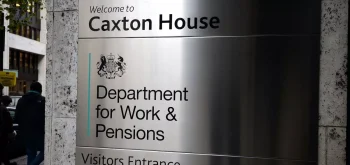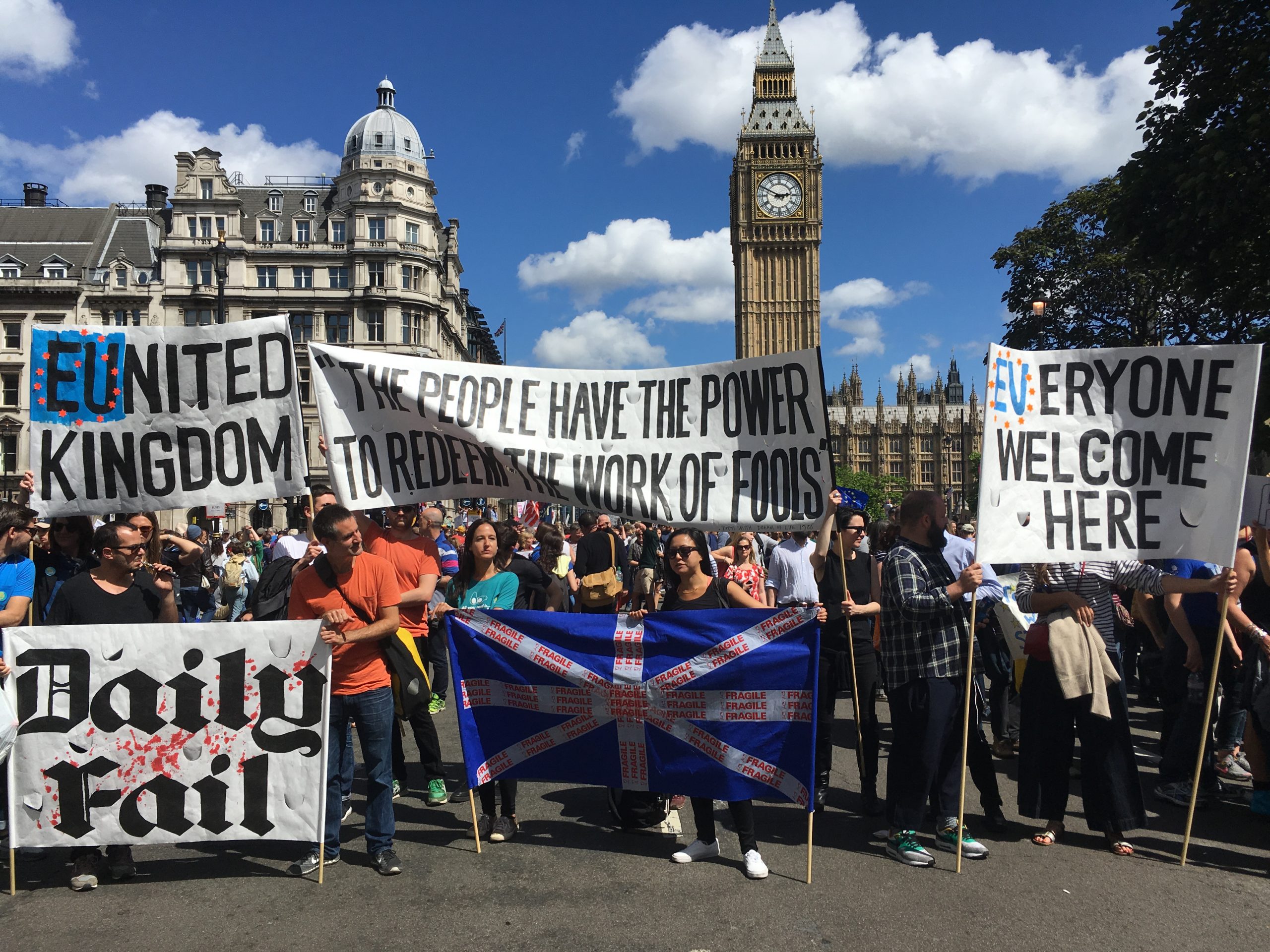‘Interfering in politics.’ This is how the government has portrayed this week’s decision of the Scottish Court of Sessions (Inner House), where a unanimous court declared that the prime minister had unlawfully misled the Queen into proroguing parliament. This decision stands in contrast to the decision of the English High Court, which found that, regardless of the truthfulness of Johnson’s advice, the matter was properly one for the political, rather than judicial, branch to resolve. This has set the stage for a battle royale at the Supreme Court next week, with the Scottish courts having provided a roadmap for a potentially revolutionary decision on the constitution and the courts’ role within it.
At first glance, it may seem that the decisions of the two courts are in conflict, with one upholding the advice given by Johnson, and the other ruling that it was deceptive, and therefore void. In reality, the issue is to do with the degree of scrutiny that the courts will apply to matters like ministerial advice to the Queen. Such issues have been presented as high policy, and therefore creatures of pure politics. Making war, signing treaties or dissolving parliament? These have been found to lay beyond the competence of the courts. They are matters of politics, not law. This was the approach taken by the High Court. The truthfulness of the advice (or lack thereof) was irrelevant to the decision to prorogue.
 In Scotland, the Court of Sessions chose to show less deference to the royal prerogative, concluding that the nature and purpose of Johnson’s advice to the Queen fell within its ambit. Through Johnson intentionally acting in a manner that violated a ‘pillar of the constitution’- preventing parliament from scrutinising the executive – his advice was fundamentally incompatible with the constitution. Parliament, which lies at the foundation of our constitutional order, could no longer perform its function. Indeed, the government’s release yesterday of the Yellowhammer documents provide a vivid example, with MPs left to froth fruitlessly on the sidelines, their constitutional role terminated by executive fiat.
In Scotland, the Court of Sessions chose to show less deference to the royal prerogative, concluding that the nature and purpose of Johnson’s advice to the Queen fell within its ambit. Through Johnson intentionally acting in a manner that violated a ‘pillar of the constitution’- preventing parliament from scrutinising the executive – his advice was fundamentally incompatible with the constitution. Parliament, which lies at the foundation of our constitutional order, could no longer perform its function. Indeed, the government’s release yesterday of the Yellowhammer documents provide a vivid example, with MPs left to froth fruitlessly on the sidelines, their constitutional role terminated by executive fiat.
This, admittedly unexpected, decision has added drama to the Supreme Court’s hearing, with the MPs’ task no longer seeming quite as Herculean as before. Rather than the courts passively sitting by as the government wilfully breaks with precedent, binding themselves by their own past decisions, the Scottish courts, at least, have shown an ability to respond to the astonishing nature of the facts before them. As the government chooses to behave in ever more extraordinary ways, the Supreme Court may decide they have little choice but to respond in kind.
Where the real issue is likely to lie, however, is not on the veracity of Johnson’s advice per se, but on the limits which it placed upon the Queen. When the Queen receives advice from her ministers, she is not legally bound to follow it. Instead, she is bound by convention, her monarchical powers held in check by the political consequences that would follow should she fail to follow her ministers’ advice.
Without going too deep into the constitutional weeds, the matter may therefore hinge on the level of the Queen’s discretion to refuse the advice of her ministers. If she must accept the advice, the legitimacy of the prorogation should depend on its legitimacy and legality. If she can exercise real discretion on whether to follow it, her decision may stand on its own, making the legality of the advice irrelevant.
The better argument is the first, where the prorogation flows inexorably from the prime minister’s advice to the monarch’s consent. The alternative would be to accept that the Queen could choose to dissolve parliament on her own, a monarchical habit that went out of fashion with Charles I. This means that where the advice offends against constitutional fundamentals, like those the Inner House found in Johnson’s request for a prorogation, it must fall, being declared a nullity. The legal fault contaminates everything that it touches, so the prorogation simply does not exist.
If the Supreme Court takes this path, it will pave the way to the true constitutional revolution, not in its examination of the royal prerogative, but in its examination of convention. There is long precedent for the court intervening in matters that go to the government’s use of the prerogative, emphasising that it is just as bound by the law as any other institution. This has done much to fetter the executive, often politically omnipotent by virtue of swingeing majorities in the Commons, emphasising that even the Crown must abide by the rule of law. L’etat, c’est moi? Non.
In contrast, convention has been universally accepted as being judicially untouchable. Instead, it has been viewed as a code of conduct, enforced by the players, not a referee. For the Supreme Court to intervene here would be a significant expansion of their terrain, bringing nearly all of the constitution under the scrutiny of judges. Yet, a path may have been put in place in the first Miller decision that the Supreme Court could tread upon. Although that case concerned the prerogative, it was the exercise of the prerogative on the international plane, where the Crown’s authority was near sacrosanct. Despite this, a majority was willing to find that because the prerogative would have abridged fundamental domestic rights, it could not be used without the consent of parliament.
This decision redefined the prerogative power to make and unmake treaties, with the judiciary curtailing it where it went to the core of the people’s domestic rights and liberties. Similarly here, the dismissal of parliament has fundamentally abridged the rights of the people’s representatives, and thus, the rights of the people. To uphold the decision would be to legitimise the government using its prerogative powers for improper purposes, frustrating the constitutional function of parliament to scrutinise.
In the High Court, the judges considered that there was an absence of judicial standards by which to examine the use of the prerogative here, and the Queen’s acceptance of Johnson’s advice. This seems tenuous, at best. It hardly seems beyond the capacity of the courts to devise a principle that would preclude prorogation where it was achieved through the provision of unlawful advice. Indeed, this is precisely what the Inner House chose to do.
This means that the two constitutional principles which stand at the pinnacle of the constitution are now butting horns, with the sovereignty of parliament having been brought into conflict with the sovereignty of the Crown. Ordinarily, the two are one and the same, but the constitutional applecart is now so upset as to bring them into contention. On this, the rights of parliament must prevail. No democracy, even one with a constitutional monarch at its head, can permit the curtailment of parliament’s right to be heard. The courts should play no part in legitimising this government’s attempt.







Back from the looking glass